Afternoon. We stopped on patrol, after a long journey along the border. Under the endless canopy of towering palm trees, a feeling of tranquility and serenity washed over us, dispelling our weariness. The scenery was so peaceful. On the other side of the border, a Khmer house stood right on the edge of a rice field. Blue smoke from the kitchen chimney curled mysteriously in a circle before disappearing into the clear blue sky.
The cheerful conversation among the border patrol team, filled with jokes and wit, suddenly turned somber. Someone remarked, "This smoke looks so much like the smoke from the kitchens back home!" Unexpectedly, childhood memories flooded back, stirring a sense of nostalgia and longing. The entire team fell silent, each lost in their own thoughts.
Back then, our village was poor. It was a poverty that lasted through a time of great hardship. My parents had to worry about everything, just to have the kitchen fire lit a couple of times a day. After the harvest, when the last grains of rice were gathered from the fields and village roads, my sisters and I would shoulder our medium-sized carrying poles and go gleaning the stubble lying curled up on the white, plowed furrows. The stubble was then threshed, the soil shaken off, and dried, to be used for cooking rice.
My hometown is in the middle of the delta, where the fire for our meager meals was usually kindled from rice straw and stubble. The golden straw stalks had a pungent, earthy aroma. Glutinous rice straw was used to make brooms and ties for climbing gourds and pumpkins, while non-glutinous rice straw was used as a food reserve for the buffaloes plowing during rainy days and cold winter nights. Firewood was scarce, so it was only used for ancestral worship ceremonies or when absolutely necessary.
Nowadays, even in my hometown, I doubt anyone uses rice straw to cook rice anymore. And perhaps in the future, few people will be able to distinguish between straw and rice stalks. Rice stalks are the lower half of the rice plant after harvesting. The upper part, after the grains have been threshed, is called straw. Rice stalks were the first to appear, starting from young rice seedlings. Over many months, the rice plant clings tightly to the soil and water, carefully concentrating all its nutrients into the panicle to offer the world plump, fragrant grains of rice. Having fulfilled its duty, the rice stalks disintegrate and break. Before becoming ashes to fertilize the soil, the rice stalks dedicate their last bit of energy, bursting into a flame that fills the kitchen with a fragrant aroma.
My mother's life was like the life of a rice plant. Enduring countless hardships, sun, and rain, she nurtured endless golden harvests, raising us to be virtuous and kind people. At over twenty years old, she married into her husband's family. Both sides of the family were poor, so my parents' only possessions were two copper pots, three pairs of breeding chickens, and a few dozen kilograms of rice. With no capital and low cooperative work points, even though they toiled from dawn till dusk, they could only afford two meager meals a day.
That year, in the middle of the summer, my mother took on a contract farming job, cultivating several acres of land for the production team. Throughout the season, my father followed the cooperative plowing team, working near and far, following the buffaloes, earning every penny of his labor. My mother single-handedly raised her young children, did housework, and worked in the fields. She ate irregularly, rushed to keep up with the work, and even had to stay up at night fanning her children. Because if she stopped fanning, my older brother would cry. My mother's arms ached, her eyes were dark circles from lack of sleep.
One late afternoon, my father returned from tending the buffalo in the fields. Just as he reached the door, he froze. In the dim light and smoke, my mother lay unconscious in the middle of the kitchen. Sweat poured from her, her face pale. My eldest sister and second brother, only three or five years old, were crying uncontrollably beside her, terrified. She still held a basket in her hand. Vegetable scraps were scattered all over the straw and the kitchen counter. With the same calmness as during the war against America, my father shook her, tugged at her hair, and massaged her for a long time before she slowly regained consciousness…
It turned out that my mother was severely weakened; after a whole day of planting rice, she only had a small portion of rice and a sweet potato to eat. Despite being exhausted, she still managed to prepare the evening meal, making sure it was ready in time for my father to come home and eat, before heading to the Cun Cút stream to catch eels in the evening. While cooking rice, boiling water, and preparing pig feed, she also pounded the "crabs" she had just caught while planting rice. "Two hands, three stoves, and pounding crabs," she juggled several tasks at once. When she finished cooking the rice and stood up to wash the vegetables, she suddenly felt dizzy and collapsed in the kitchen. Luckily, my father arrived just in time. He then went to the commune's health station to buy medicine and gave my mother an injection. With a little military medical knowledge from his time in the Trường Sơn forest, he treated all sorts of illnesses for the whole family. Despite her illness, my mother only stayed home for a day to rest and receive treatment; the next morning, she was back in the fields pulling up seedlings and planting rice as usual.
On the small plot of land allocated to them, besides the two rice crops, my parents intensively cultivated crops according to the season. They even intercropped with other plants like watermelons, cantaloupes, corn, and beans, planting them in rows alongside the early-planted rice to ensure they could be ready for the next season. My mother utilized the wasteland, pond banks, irrigation ditches, and the small garden at home to grow all kinds of vegetables and fruits. My parents also raised various poultry, from chicks to adults, and kept a pond full of fish, feeding them grass and bran every afternoon. A small portion of the produce was used for daily living expenses, while the majority was sold at the market to improve the family's economic situation .
And so, my parents carefully saved every grain of rice, every potato, every chicken, every duck, and so on, until our family life gradually became more prosperous. By the time I was born, my parents had built a brick house, a three-room house with a red tiled roof and two rooms with a flat roof, considered quite beautiful in Dun Noi village. On the day the pillars were erected in preparation for the roof, my maternal grandfather wrote a couplet for his children to place on either side of the crossbeam. The Vietnamese script was written in a flowing, elegant calligraphy style: "Frugality and diligence cultivate virtue - Creativity befitting a new foundation."
My grandfather explained that: Taking frugality and diligence as a motto for life – (but also knowing how to be) creative to build a new life. Until the early 2000s, the house was still very sturdy before being replaced with a new flat-roofed house to suit the new lifestyle.
For over twenty years I've been away from home. Thanks to my work, I've traveled to almost every region in the country, enjoying the cuisine of many places with their distinct cultural characteristics; I've also been to restaurants and banquets, and tasted all sorts of delicacies. But the most delicious meals of my life are still those cooked by my mother. Delicious meals from my childhood, deeply ingrained in my subconscious and staying with me throughout my life.
That July, a terrible storm from the East Sea swept into my village, destroying almost all the crops of the summer-autumn harvest that was about to begin. From the afternoon before, as the storm was about to hit, my whole family packed up our mats, blankets, and belongings into two rooms, which were usually used as storage for rice because they were stuffy and hot. After dinner, the storm grew stronger, and the trees in the yard began to sway. Around midnight, the eye of the storm arrived. Through the window, I heard the wind howling incessantly, the clanging of objects flying, and the painful cracking of falling trees. My mother, my children, and even the dogs and cats huddled together by the rice bin, waiting for the storm to pass. My father stayed outside in the hut, braving the storm to reinforce the pond's embankment, preventing the water from overflowing and the fish from swimming away. The storm dragged on like a monster in a fairy tale.
The following afternoon, after the storm had passed, my mother and I dared to cautiously open the bedroom door and sneak out. It was around three or four in the afternoon. The sky was a gray, gloomy gray. The scene was one of utter devastation and ruin. Almost all the roof tiles of the three rooms had been blown away, and trees in the garden were leaning precariously. The largest eucalyptus tree by the pond had fallen over, lying across the garden, crushing the guava and orange trees laden with fruit. The pigsty was flooded, and two young pigs had run out, digging through the vegetable beds and holes in the ground searching for food. The mother hen and her chicks huddled on tree branches, their feathers matted to their skin, shivering uncontrollably.
My sisters and I helped Dad clean the house, while Mom prepared dinner. The pile of straw was tilted in the middle of the alley, soaking wet. Luckily, the remaining straw hadn't been blown away, but it was also askew, some strands wet, some dry. Mom rearranged the three bundles of vegetables in a corner of the house where the water had drained. The wind was still howling, the rain had lessened but was still drizzled. A bluish smoke slowly crept up. Mom covered everything, struggling to keep the fire from going out. But the straw was wet, and the wind and rain made the flame flicker and waver amidst the billowing smoke. By the time she finished cooking the rice, Mom's face was smeared with ash and dust, tears and snot streaming down her face. Not enough warm ash to bury the rice pot, she arranged the remaining dry straw around the pot, piled more straw, and lit the fire. Because it was still raining, the smoke couldn't escape; it gathered on the roof and swirled back, filling the kitchen. The smoke was thick and black, stinging my eyes.
Finally, the rice and the steamed eggs were cooked. After a day of starvation, the steaming bowl of rice, fragrant with the smoky aroma of wood ash, was delicious. The only food I had was boiled water spinach dipped in a sauce of fish sauce and chili peppers, yet it tasted better than ever. Wherever the rice touched, all the hunger, fatigue, and cold vanished. It truly was like the proverb, "warming the inside out."
My mother only ate one bowl of rice, then watched the whole family eat in silence. She filled my bowl with rice, and added a piece of egg yolk to my bowl. It was always like that; she always saved the best pieces for her husband and children. She said, "Eat slowly, or you'll choke." I saw tears well up in her eyes, a poignant expression on her face. Her gaze was tender and affectionate. Her lifelong happiness had been caring for her husband, her children, and later, her grandchildren.
I've been in the military, far from home and my mother for so many years, but that simple meal on a rainy afternoon still tastes delicious and warms my heart. And so, whenever I see the smoke rising in the evening, no matter where I am, the image of my homeland during those difficult times, the image of my mother, toiling and struggling all her life to provide for her children, filling my subconscious with every meal and every piece of clothing: "The smoke from my mother's evening meal – from time immemorial, it still lingers in my eyes."
Nguyen Hoi
Source link


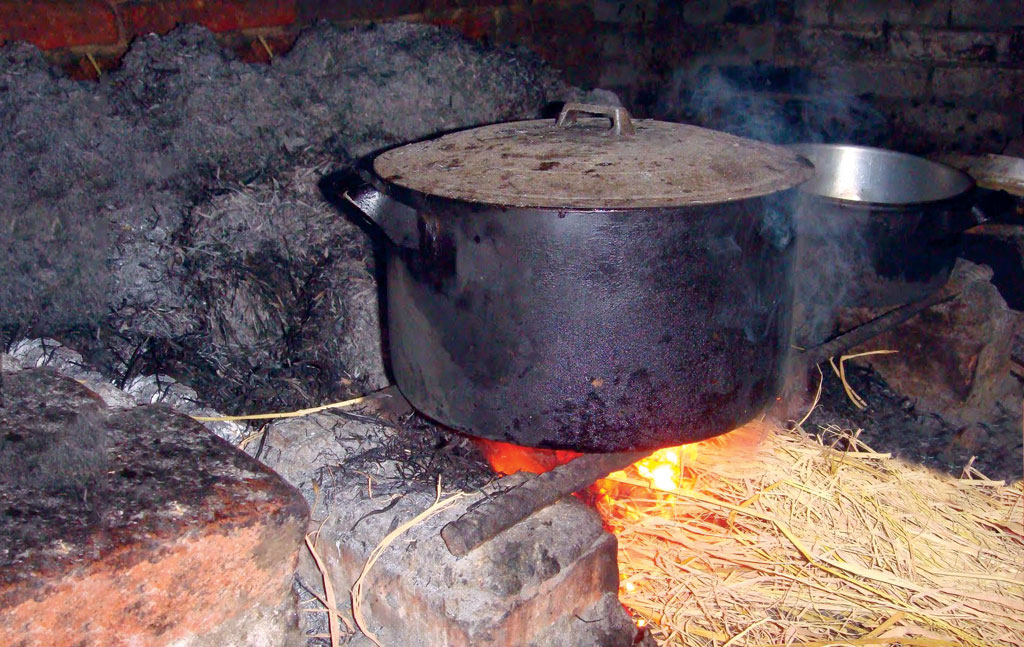

![[Photo] General Secretary To Lam visits the exhibition space showcasing books, photo exhibitions, and achievements of digital transformation in journalism.](/_next/image?url=https%3A%2F%2Fvphoto.vietnam.vn%2Fthumb%2F1200x675%2Fvietnam%2Fresource%2FIMAGE%2F2025%2F12%2F19%2F1766110879215_1766110240024-jpg.webp&w=3840&q=75)



![[Photo] Enchanting ancient rose garden on the mountainside in Nghe An](/_next/image?url=https%3A%2F%2Fvphoto.vietnam.vn%2Fthumb%2F1200x675%2Fvietnam%2Fresource%2FIMAGE%2F2025%2F12%2F19%2F1766109900916_vuon-hong-chin-do-thu-hut-du-khach-toi-check-in-o-ha-noi-3-20162778-1671624890024-1671624890104198100259.jpeg&w=3840&q=75)


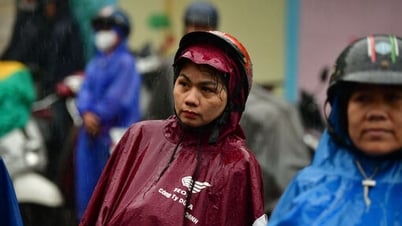
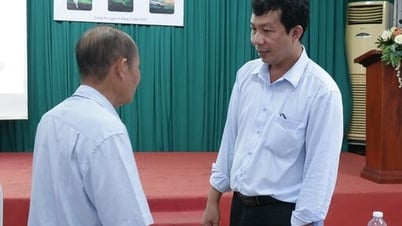
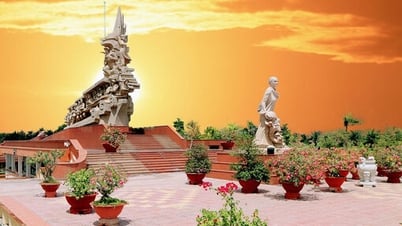
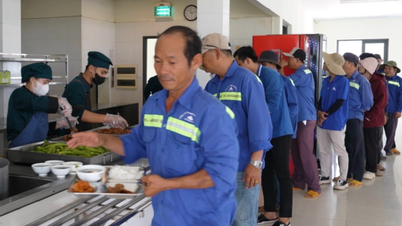






















































































Comment (0)